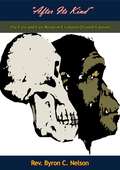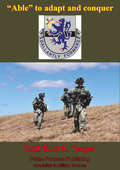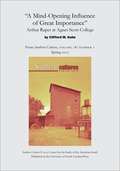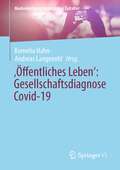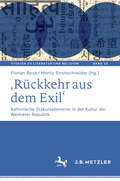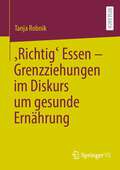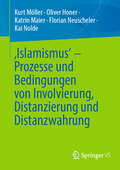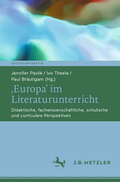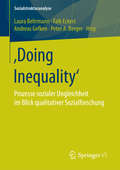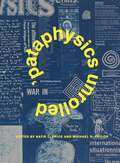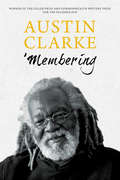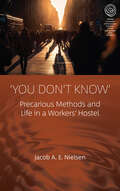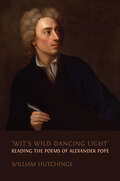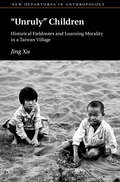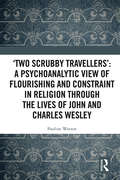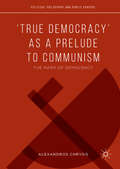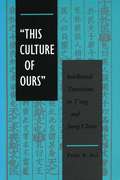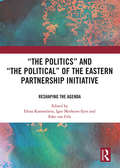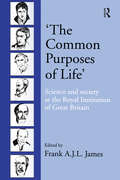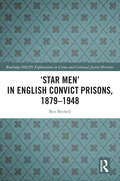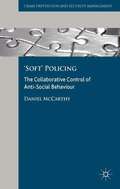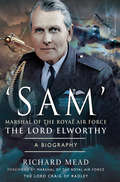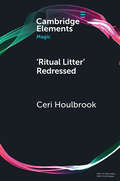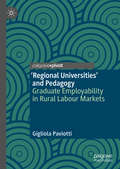- Table View
- List View
“After Its Kind”: The First and Last Word on Evolution [Fourth Edition]
by Rev Byron C. NelsonThe pages of this book are the product of years of study of a Bible-lover who has gone through the fiery furnace of skepticism and has come out firmly convinced of the scientific trustworthiness of the first chapter of the Book of Genesis. In this book are contained the conclusions of an examining and weighing of evidences and arguments for and against the theory of evolution which began when, as a young man in the University of Wisconsin, the author’s Christian faith was almost destroyed by the wave of evolutionary philosophy and pseudo-science that has swept over the universities and colleges of our land.The incentive to write these pages was a desire to give to others the benefit of the author’s personal experience. Having been fortunate or unfortunate enough to have been caught early in life in the maelstrom of religious uncertainty that catches so many in our day, due to the widespread discussion of evolution, and having been driven by a desire to know the truth, cost what it may, to follow every important evolutionary argument to its end, and then having finally concluded that nothing is so scientific as the Bible statement “after its kind,” the author believed that a work on the subject of evolution by him might meet the needs of some others who were undergoing an experience like his.
“Able” To Adapt And Conquer (Eyewitness To Modern War #1)
by CSM Todd R. YergerDuring Operation Enduring Freedom (OEF) VII and VIII, Able Troop 3-71 Cavalry operated as the brigade rapid mounted reaction force throughout Regional Command East (RC-E) and South in Afghanistan. This paper tells of how our unit moved in-between Regional Commands to deter and destroy the enemy, set up multiple Combat Out Posts (COP), trained Afghanistan National Police (ANP), dealt with the first extension and set the stages in the North for follow on forces.
“A Mind-Opening Influence of Great Importance”: Arthur Raper at Agnes Scott College
by Clifford M. KuhnHe was such an eye-opener to me . . . such a reversal of the whole way you think about life and society."This article appears in the Spring 2012 issue of Southern Cultures. The full issue is also available as an ebook.Southern Cultures is published quarterly (spring, summer, fall, winter) by the University of North Carolina Press. The journal is sponsored by the University of North Carolina at Chapel Hill's Center for the Study of the American South.
‚Öffentliches Leben‘: Gesellschaftsdiagnose Covid-19 (Medienkulturen im digitalen Zeitalter)
by Andreas Langenohl Kornelia HahnMit Ausbruch der Covid-19-Pandemie beobachten wir plötzlich gravierende Veränderungen des sozialen Lebens, die die aktuelle Situation als tragisches Krisenexperiment fungieren lassen – ein Experiment, das sich besonders auch im Hinblick auf die Konzeptualisierung von Öffentlichkeit und die soziologische Beobachtung empirischer Öffentlichkeiten zeigt. Nicht zuletzt aufgrund des Drucks öffentlicher Kommunikation hat die Covid-19-Pandemie global zu fast vergleichbaren gesellschaftspolitischen Reaktionen geführt: Das öffentliche Leben ist innerhalb kürzester Zeit und flächendeckend wie nie zuvor eingeschränkt worden. Diese Einschränkung wird als fraglose Gegenmaßnahme kommuniziert, die sich aus der Art der pandemischen Bedrohung rational ableitet. Aus einer öffentlichkeitssoziologischen Sicht manifestiert sich in dieser Reaktion eine Gesellschaftsdiagnose mit Universalismusanspruch, die indes ambivalent bleibt: In Zeiten von Epidemien gilt öffentliches Leben als ebenso gefährlich wie gefährdet.
‚Rückkehr aus dem Exil‘: Katholische Diskurselemente in der Kultur der Weimarer Republik (Studien zu Literatur und Religion / Studies on Literature and Religion #10)
by Florian Bock Moritz StrohschneiderDie Kultur der Weimarer Republik begeisterte sich in besonderem Maße für solche religiösen Ideen, von denen man sich Hilfe beim Umgang mit den allgegenwärtigen Krisenerfahrungen erhoffte. Auf diese Weise wanderten zahlreiche genuin katholische Überzeugungen und Positionen in den öffentlichen Diskurs ein und prägten gesellschaftliche Semantiken und Praktiken. Solche katholischen Diskurselemente, die außerhalb des gesellschaftlichen Teilsystems Religion, aus dem sie eigentlich stammen, und damit auch jenseits der katholischen Milieus wirksam und einflussreich waren, stehen im Fokus dieses interdisziplinär angelegten Bandes.
‚Richtig‘ Essen – Grenzziehungen im Diskurs um gesunde Ernährung
by Tanja RobnikDie vorliegende Studie fokussiert auf die diskursive Herstellung ‚richtiger‘ Ernährung und deren Bedeutung für die Ordnung moderner Gesellschaften. Sie analysiert gegenwärtige massenmediale Thematisierungen von Ernährung anhand der Leitfrage, wie entlang von Ernährungsdebatten die Normierung und Moralisierung sozialer Ordnung empirisch geschieht. Die Frage nach der ‚richtigen‘ Ernährung wird als Diskurs verortet, der die empirischen Verhandlungen des ‚was‘ (das ‚richtige‘ Essen), ‚wie‘ (‚richtige‘ Körper) und ‚wer‘ (die ‚Essenden‘) des Essens bzw. der Ernährung sichtbar macht. Das Forschungsvorhaben zielt dabei darauf ab, die eine ‚richtige‘ Ernährung im Sinne einer Baukastenanleitung herauszuarbeiten. Es beobachtet vielmehr, dass Ernährung gesellschaftlich erklärungsbedürftig ist. Essverhalten und -entscheidungen brauchen Begründungen und sind nicht immer gleich akzeptiert. Der diskurstheoretische Blick auf diese Auseinandersetzungen zeigt, welche Wissensformationen sich durchsetzen, in welcher Form sich Ernährungswissen plausibilisiert und wie sich dadurch ein hegemonialer Diskurs über die ‚richtige‘ Ernährung und die Essenden zeigt.
‚Islamismus‘ - Prozesse und Bedingungen von Involvierung, Distanzierung und Distanzwahrung
by Oliver Honer Kurt Möller Kai Nolde Katrin Maier Florian NeuschelerWarum und wie wird jemand zu einem sogenannten Islamisten oder zu einer Islamistin? Wieso, auf welche Weise und wann erfolgen Distanzierungen von solchen Haltungen und Sozialzusammenhängen? Was sind relevante Bedingungen dafür, dass ‚islamistische‘ Ansprachen bei anderen Adressierten nicht verfangen und sie jegliche Involvierung ablehnen? Dies sind die zentralen Fragen, zu denen dieses Buch Antworten präsentiert und daraus abgeleitet Handlungsempfehlungen formuliert. Dafür fasst es den aktuellen Forschungsstand zusammen und informiert über die empirischen Befunde der an der Hochschule Esslingen von 2019 bis 2022 durchgeführten Studie Wendezeit. Es handelt sich um eine auf junge Menschen fokussierte, längsschnittlich angelegte und qualitativ-rekonstruktive Untersuchung. Sie basiert auf Interviews mit 44 ehemalig ‚islamistisch‘ involvierten Proband:innen bzw. mit solchen, die Kontakte zu ‚islamistischen‘ Kontexten hatten, aber Distanz wahrten. In ausgewählten Fällen wurden Gespräche mit Distanzierungsberater:innen und Umfeldangehörigen der Betroffenen in die Auswertung einbezogen.
‚Europa‘ im Literaturunterricht: Didaktische, fachwissenschaftliche, schulische und curriculare Perspektiven (Deutschdidaktik)
by Ivo Theele Jennifer Pavlik Paul BräutigamDer Band dokumentiert die Ergebnisse einer Tagung, auf der Fachdidaktiker:innen, Fachwissenschaftler:innen, Lehrer:innen und Vertreter:innen der Bildungsverwaltung diskutierten, wie europasensibler Literaturunterricht aussehen könnte. Die Beiträge knüpfen an den Beschluss der Kultusministerkonferenz „Europabildung in der Schule“ an, differenzieren und spezifizieren diesen für den Literaturunterricht. In unterschiedlichen Perspektiven werden Potentiale einer Europabildung mit ästhetischen Medien, die curriculare Verankerung derselben sowie Möglichkeiten der Etablierung einer langfristigen Europabildung im Unterrichtsfach Deutsch erörtert.
‚Doing Inequality‘: Prozesse sozialer Ungleichheit im Blick qualitativer Sozialforschung (Sozialstrukturanalyse)
by Peter A. Berger Laura Behrmann Falk Eckert Andreas GefkenDie Beiträge des Bandes zeigen und diskutieren das Potenzial einer mikrosoziologischen, prozessorientierten – qualitativen – Ungleichheitsforschung. Sie spüren Praktiken sozialer Besser- und Schlechterstellung in den Bereichen Bildung, Arbeit, soziale Beziehungen und Migration auf. Mit der interpretativen, handlungstheoretischen oder praxissoziologischen Perspektive machen sie das „Doing Inequality“, die Gemachtheit und die Vollzugswirklichkeit sozialer Ungleichheit sowie die Rolle von Akteuren bei der Herstellung, der Reproduktion und dem Wandel von sozialen Ungleichheiten zentral. Soziale Ungleichheiten ergeben sich aus der regelmäßig ungleichen Verteilung „wertvoller Güter“ einer Gesellschaft. Doch wie werden diese zugeteilt, angeeignet oder vorenthalten?
’Pataphysics Unrolled (Refiguring Modernism)
by Katie L. Price and Michael R. TaylorIn the 1890s, French poet and playwright Alfred Jarry founded pataphysics, the absurdist “science of imaginary solutions,” a concept that has been nominally recognized as the precursor to Dadaism, Surrealism, and the Theater of the Absurd, among other movements. Over a century after Jarry “made the gesture of dying,” Katie L. Price and Michael R. Taylor argue that it is time to take the comedic intervention of pataphysics seriously.’Pataphysics Unrolled collects critical and creative essays to create an unauthorized account of pataphysical experimentation from its origins in the late nineteenth century through the contemporary moment. Reaching beyond the geographic and cultural boundaries normally associated with pataphysics, this volume presents rich readings of pataphysical syzygy, traces the influence of pataphysics across disciplines and outside of coteries such as the Collège de ’Pataphysique, and asks fundamental questions about the field of modern and contemporary studies that challenge distinctions between the modern and the postmodern, high and low culture, the serious and the comic. Touching on disciplines such as literature, art, architecture, education, music, and technology, this book reveals how pataphysics has been a platform and medium for persistent intellectual, poetic, conceptual, and artistic experimentation for over a century.In addition to the editors, the contributors to this volume include Charles Bernstein, Marc Décimo, Adam Dickinson, Johanna Drucker, Craig Dworkin, Catherine Hansen, James Hendler, John Heon, Ted Hiebert, Andrew Hugill, Steve McCaffery, Seth McDowell, Jerome McGann, Anne M. Mulhall, Marcus O’Dair, Jean-Michel Rabaté, Orchid Tierney, and Brandon Walsh.
’Pataphysics Unrolled (Refiguring Modernism #36)
by Katie L. Price and Michael R. TaylorIn the 1890s, French poet and playwright Alfred Jarry founded pataphysics, the absurdist "science of imaginary solutions," a concept that has been nominally recognized as the precursor to Dadaism, Surrealism, and the Theater of the Absurd, among other movements. Over a century after Jarry "made the gesture of dying," Katie L. Price and Michael R. Taylor argue that it is time to take the comedic intervention of pataphysics seriously.’Pataphysics Unrolled collects critical and creative essays to create an unauthorized account of pataphysical experimentation from its origins in the late nineteenth century through the contemporary moment. Reaching beyond the geographic and cultural boundaries normally associated with pataphysics, this volume presents rich readings of pataphysical syzygy, traces the influence of pataphysics across disciplines and outside of coteries such as the Collège de ’Pataphysique, and asks fundamental questions about the field of modern and contemporary studies that challenge distinctions between the modern and the postmodern, high and low culture, the serious and the comic. Touching on disciplines such as literature, art, architecture, education, music, and technology, this book reveals how pataphysics has been a platform and medium for persistent intellectual, poetic, conceptual, and artistic experimentation for over a century.In addition to the editors, the contributors to this volume include Charles Bernstein, Marc Décimo, Adam Dickinson, Johanna Drucker, Craig Dworkin, Catherine Hansen, James Hendler, John Heon, Ted Hiebert, Andrew Hugill, Steve McCaffery, Seth McDowell, Jerome McGann, Anne M. Mulhall, Marcus O’Dair, Jean-Michel Rabaté, Orchid Tierney, and Brandon Walsh.
’Membering
by Austin Clarke2016 OCM Bocas Prize for Caribbean Literature — Longlisted 2016 RBC Taylor Prize — Longlisted The unforgettable memoir of Giller Prize–winning author and poet Austin Clarke, called “Canada’s first multicultural writer.” Austin Clarke is a distinguished and celebrated novelist and short-story writer. His works often centre around the immigrant experience, of which he writes with humour and compassion, happiness and sorrow. In ’Membering, Clarke shares his own experiences growing up in Barbados and moving to Toronto to attend university in 1955 before becoming a journalist. With vivid realism he describes Harlem of the ’60s, meeting and interviewing Malcolm X and writers Chinua Achebe and LeRoi Jones. Clarke went on to become a pioneering instructor of Afro-American Literature at Yale University and inspired a new generation of Afro-American writers. Clarke has been called Canada’s first multicultural writer. Here he eschews a traditional chronological order of events and takes the reader on a lyrical tour of his extraordinary life, interspersed with thought-provoking meditations on politics and race. Telling things as he ’members them.
‘You Don’t Know’: Precarious Methods and Life in a Workers' Hostel (EASA Series)
by Jacob A. E. NielsenPeople employed at sites of precarious work such as call centres or retail warehouses often live precarious lives. Drawing on ethnographic research in a London hostel for precarious workers, the book explores the political, analytical and practical limitations of using traditional methods of trying to make sense of life in these settings. Traditional methods are rooted in practices that emerge from privileged social positions and their enactment is deeply entangled with the processes that create these conditions in the first place. This book responds to this by experimenting with ‘precarious methods’ to enable greater agency to those placed in these precarious situations.
‘Wit’s Wild Dancing Light’
by William HutchingsWit's Wild Dancing Light acts as a highly useful entry point for readers who are encountering Pope for the first time and also contains much illuminating material for those who are already familiar with his poetry. Dr Ian Calvert, University of Bristol The book is a chronological reading of Alexander Pope’s poems, from the Pastorals (1709) to the four-book Dunciad (1743). Each of the 26 chapters forming the volume selects examples for detailed scrutiny, demonstrating how close reading can generate understanding of a whole poem and how critical appraisal can build into a creative survey of an entire poetic career. The book’s approach is intended to be both scholarly and accessible and Wild Wit's Dancing Light will be of interest to scholars, students and anybody interested in Pope’s masterful poetry. William Hutchings was formerly Senior Lecturer in English Literature and Director of the Centre for Excellence in Enquiry-Based Learning at the University of Manchester, UK and he is presently Honorary Research Fellow in the School of Arts, Languages and Cultures at that university. He now lectures regularly to public groups locally and nationally. He has a wealth of teaching experience on English Literature courses at undergraduate and postgraduate level, and is the editor of Andrew Marvell: Selected Poems, the author of The Poetry of William Cowper, and Literary Criticism: A Practical Guide for Students.
‘Unruly’ Children: Historical Fieldnotes and Learning Morality in a Taiwan Village (New Departures in Anthropology)
by Jing XuHow do we become moral persons? What about children's active learning in contrast to parenting? What can children teach us about knowledge-making more broadly? Answer these questions by delving into the groundbreaking ethnographic fieldwork conducted by anthropologists Arthur and Margery Wolf in a martial law era Taiwanese village (1958-60), marking the first-ever study of ethnic Han children. Jing Xu skillfully reinterprets the Wolfs' extensive fieldnotes, employing a unique blend of humanistic interpretation, natural language processing, and machine-learning techniques. Through a lens of social cognition, this book unravels the complexities of children's moral growth, exposing instances of disobedience, negotiation, and peer dynamics. Writing through and about fieldnotes, the author connects the two themes, learning morality and making ethnography, in light of social cognition, and invites all of us to take children seriously. This book is ideal for graduate and undergraduate students of anthropology and educational studies.
‘Two Scrubby Travellers’: A psychoanalytic view of flourishing and constraint in religion through the lives of John and Charles Wesley
by Pauline WatsonThe ways in which people change and grow, and learn to become good, are not only about conscious decisions to behave well, but about internal change which allows a loving and compassionate response to others. Such change can take place in psychotherapy; this book explores whether similar processes can occur in a religious context. Using the work of Julia Kristeva and other post-Kleinian psychoanalysts, change and resistance to change are examined in the lives of John Wesley, the founder of Methodism, and his brother Charles, the greatest English hymn-writer. Their mother’s description of them as young men as ‘two scrubby travellers’, was a prescient expression indicating their future pilgrimage, which they negotiated through many struggles and compromises; it points towards the ‘wounded healer’, a description which could be applied to John in later years. The use of psychoanalytic thought in this study allows the exploration of unconscious as well as conscious processes at work and interesting differences emerge, which shed light on the elements in religion that promote or inhibit change, and the influence of personality factors. ‘Two scrubby travellers’: A psychoanalytic view of flourishing and constraint in religion through the lives of John and Charles Wesley enriches our understanding of these two important historical figures. It questions the categorising of forms of religion as conducive to change and so ‘mature’, and other forms as ‘immature’, at a time when many, particularly young people, are attracted by fundamentalist, evangelical forms of belief. This book will be essential reading for researchers working at the intersection of psychoanalysis and religious studies; it will also be of interest to psychotherapists and psychoanalysts more generally, and to researchers in the philosophy of religion.
‘True Democracy’ as a Prelude to Communism
by Alexandros ChrysisThis book constitutes a critical intervention in the theoretical discussion over the political relationship between democracy and communism. Shedding light on the philosophical origins of the democracy debate, it draws a clear demarcation line between liberalism and republicanism, arguing that after rejecting the former and supporting the latter, the young Marx endorsed 'true democracy' as a prelude to his forthcoming theory of communism. To this end, while following the dynamics of the Marxian history of political ideas and pre-communist theory of the state, the book takes into account the thought of a vast range of philosophers and political theorists, starting from the Ancient times (Aristotle), passing through the Age of Enlightenment (Spinoza, Rousseau), the German Idealist tradition (Hegel) the Young Hegelians’ Republicanism (Bauer, Ruge, Feuerbach), and reaching our own times (Arendt, Colletti, MacPherson, Castoriadis, Poulantzas). It will be of interest to students and scholars interested in the history of political thought, theories of democracy, and Marxism.
‘This Culture of Ours’: Intellectual Transitions in T’ang and Sung China
by Peter BolThis book traces the shared culture of the Chinese elite from the seventh to the twelfth centuries. The early T'ang definition of 'This Culture of Ours' combined literary and scholarly traditions from the previous five centuries. The late Sung Neo-Confucian movement challenged that definition. The author argues that the Tang-Sung transition is best understood as a transition from a literary view of culture - in which literary accomplishment and mastery of traditional forms were regarded as essential - to the ethical orientation of Neo-Confucianism, in which the cultivation of one's innate moral ability was regarded as the goal of learning. The author shows that this transformation paralleled the collapse of the T'ang order and the restoration of a centralized empire under the Sung, underscoring the connection between elite formation and political institutions.
‘The Politics’ and ‘The Political’ of the Eastern Partnership Initiative: Reshaping the Agenda
by Elena Korosteleva Merheim-Eyre Eske Van GilsThe Special Issue consolidates new approaches to the study of the EU’s role in the eastern neighbourhood and beyond, informed by post-structuralist traditions in international relations. More specifically, by revisiting the European Neighbourhood Policy’s agenda from the conceptual perspective of ‘the political’ and redefining the notions of ‘othering’, ‘differentiation’ and ‘normalisation’, this volume renders a new and much-needed theoretical and empirical outlook onto the policy developments and their practices. By unpacking and connecting security, regional, institutional, normative and sector-thematic policy dimensions, the book seeks to re-politicise the agenda and re-focus policy revision on understanding the fundamentals of power relations when applied to the EU external relations. In light of the compounding crises, external and internal, one can no longer afford to simply tinker around the edges of the policy content and instruments. A more radical theoretical undertaking is overdue, to re-shape, re-define and re-centre the EU relations with the eastern region especially, put in the context of the new EU’s Global Security Strategy, and the new aspirations for the 2017 European Neighbourhood summit. The chapters originally published as a special issue in East European Politics.
‘The Common Purposes of Life’: Science and Society at the Royal Institution of Great Britain
by Frank A. J.L. JamesFor more than two hundred years the Royal Institution has been at the centre of scientific research and has also provided a cultural location for science in Britain. Within its walls some of the major scientific figures of the last two centuries - such as Humphry Davy, Michael Faraday, John Tyndall, James Dewar, Lord Rayleigh, William Henry Bragg, Henry Dale, Eric Rideal, William Lawrence Bragg and George Porter - carried out much of their research. Their discoveries include sodium, the miners' lamp, the electric dynamo, transformer and generator, the 'thermos' flask, x-ray crystallography and much else besides, all of which brought about major changes in the way we live. The success of the Royal Institution in research and in locating science within general culture led it being used as a model for other institutions, most notably by the founders of the Smithsonian Institution in Washington. Much has been written about the scientific work in the Royal Institution, but comparatively little attention has been devoted to the cultural settings which allowed the Royal Institution to become such a major site for the creation of scientific knowledge. This book seeks to rectify this gap by examining various aspects of its history through both thematic and chronological chapters.
‘Star Men’ in English Convict Prisons, 1879-1948 (Routledge SOLON Explorations in Crime and Criminal Justice Histories)
by Ben BethellThis book tells the story of the star class, a segregated division for first offenders in English convict prisons; known informally as ‘star men’, convicts assigned to the division were identified by a red star sewn to their uniforms. ‘Star Men’ in English Convict Prisons, 1879–1948 investigates the origins of the star class in the years leading up to its establishment in 1879, and charts its subsequent development during the late-Victorian, Edwardian, and interwar decades. To what extent did the star class serve to shield ‘gentleman convicts’ from their social inferiors and allow them a measure of privilege? What was the precise nature of the ‘contamination’ by which they and other ‘accidental criminals’ were believed to be threatened? And why, for the first twenty years of its existence, were first offenders convicted of ‘unnatural crimes’ barred from the division? To explore these questions, the book considers the making and implementation of penal policy by senior civil servants and prison administrators, and the daily life and work of prisoners at policy’s receiving end. It re-examines evolving notions of criminality, the competing aims of reformation and deterrence, and the role and changing nature of prison labour. Along the way, readers will encounter an array of star men, including arsonists, abortionists, sex offenders and reprieved murderers, disgraced bankers, light-fingered postmen, bent solicitors, and perjuring policemen. Taking a fresh look at English prison history through converging lenses of class, sexuality, and labour, ‘Star Men’ in English Convict Prisons, 1879-1948 will be of great interest to penal historians and historical criminologists, and to scholars working on related aspects of modern British history.
‘Soft’ Policing: The Collaborative Control of Anti-Social Behaviour (Crime Prevention and Security Management)
by Daniel MccarthyExamining multi-agency working in response to anti-social behaviour, this book investigates the way in which the police, social work teams and the youth justice service work together on early intervention initiatives to help young people, and explores the complexities and practical struggles of these partnerships.
‘SAM’ Marshal of the Royal Air Force the Lord Elworthy: A Biography
by Richard MeadSam Elworthys career was remarkable by any standards. Born in New Zealand in 1911 and educated in England, he was called to the Bar. After learning to learning to fly he joined the RAAF. During the Second World War he won the DFC, DSO and AFC and, after commanding 82 Squadron, worked closely with Bomber Harris and General Eisenhower. He became an air commodore aged 33.His meteoric rise continued post-war. Switching to Fighter Command he saw service in India, Pakistan, and the UK before becoming Commandant of the RAF Staff College. By 1960 he was tri-service C-in-C Middle East and his actions prevented the invasion of Kuwait by Iraq.As Chief of Air Staff and Chief of defense Staff in the 1960s he fought the Services corner at a difficult political and economic time. He secured the long term future of the RAF, whose very existence was threatened. A hugely respected figure, he became a life peer, Knight of the Garter and Constable of Windsor Castle. He died in 1993 in his native New Zealand.This long overdue biography attempts successfully to do justice to a man of great stature, integrity and achievement.
‘Ritual Litter' Redressed (Elements in Magic)
by Ceri HoulbrookRitual deposition is not an activity that many people in the Western world would consider themselves participants of. The enigmatic beliefs and magical thinking that led to the deposition of swords in watery places and votive statuettes in temples, for example, may feel irrelevant to the modern day. However, it could be argued that ritual deposition is a more widespread feature now than in the past, with folk assemblages – from roadside memorials and love-lock bridges, to wishing fountains and coin-trees – emerging prolifically worldwide. Despite these assemblages being as much the result of ritual activity as historically deposited objects, they are rarely given the same academic attention or heritage status. As well as exploring the nature of ritual deposition in the contemporary West, and the beliefs and symbolisms behind various assemblages, this Element explores the heritage of the modern-day deposit, promoting a renegotiation of the pejorative term 'ritual litter'.
‘Regional Universities’ and Pedagogy: Graduate Employability in Rural Labour Markets
by Gigliola PaviottiThis book explores the issue of graduate employability in rural labour markets. European higher education institutions are expected to be crucial players in terms of regional innovation, contributing through research, education and formation of human capital. The author asks how this role be played out equally in urban and rural areas. In rural areas, the most educated young members of society often find it impossible to contribute to the local economy and feel forced to seek better prospects in urban centres. The author examines the roles of higher education in rural centres, as well as the transitions from education to work by taking the point of view of students and graduates. Finally, the book offers advice for pedagogies that support the increase of employability potential for rural economies.
